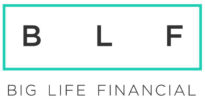Are Your Investments Going in the “Junk Drawer”?
We are all creatures of habit. We eat the same things, go to the same places, and get ready for the day in the same way almost every morning. In many ways these habit help us get things handled and that’s a good thing, but sometimes our way of handling certain things isn’t ideal. For example, nearly everyone I know has some place that they stash stuff that doesn’t really have a ‘place’. It might be a closet in an extra bedroom or some sort of junk drawer, but whatever it is it becomes the home for all of the stuff we don’t want (or know how) to deal with. Here’s the problem… Although “junk drawers” aren’t a bad thing, the stuff that gets put in them almost never gets truly figured out at a high level… and in the case of extra keys, rubber bands, or chip clips that isn’t a big deal. However, I’ve found that most people put their investing strategy in the junk drawer because they think they have it “handled”. They think they have it taken care of because it’s out of site, but that’s the danger. It Ain’t What You Don’t Know That Gets You Into Trouble. It’s What You Know for Sure That Just Ain’t So ~Mark Twain Most business owners I’ve met no true plan. They don’t know how much they need to save to actually retire comfortably. They don’t know how to maximize the sale of their business, how to save effectively, or how to allocate their money to make sure it’s safe and optimized. They’re just following some vague financial advice that sounded “good enough”. If this sounds familiar, I want to give you one simple tool make understanding your financial situation (and making investing decisions) easier. I’m hoping this will help you take investing out of the junk drawer and at least put it in plain sight. THE 3 REASONS PEOPLE INVEST: Growth: The first and most common reason people invest their money is for growth. They want to invest their money so it will go up in value and hopefully sell it at a profit later. The most common example of this is the stock market (including IRA’s, 401(k)’s, SEP’s, Roth’s etc.) You buy a stock with the hope that it will go up and be worth more sometime in the future. Another example is real estate development. You buy a piece of property (or invest with someone who bought it) and then the value of that property is increased by putting a house or building on it. Next the property is sold for more and you hopefully make a profit. Taxes: The second reason people invest their money is for tax purposes. Whether you realize it or not there are investments that can provide massive tax benefits. Some investments offer large write off’s or deductions, others create tax free growth, yet others create tax free income. This might include Roth IRA’s, Life Insurance, Cash Flow Real Estate, Opportunity Zones, or more… If you make more than $200K per year then these types of investments begin to have a very strong appeal because the tax saving in addition to any other growth can make a massive difference in how quickly you build wealth. It’s also worth noting that the higher your tax bracket, the more valuable these tax breaks become to your bottom line. Cash Flow: Investments that pay you at regular intervals are cash flow positive investments. They generate new money that you can live on or reinvest and are wildly popular because it’s fun to get a check (or deposit) each time they pay out. Cash flow investments are often referenced when people discuss “financial freedom” or “getting out of the rat race”. If you’re not familiar with what that means, it’s the idea that once your investment income surpasses your monthly expenses then you don’t have to “work” any longer – you’re financially free. There’s a little more to it than that, but the idea is the foundation of what it takes to retire comfortably. So the question is, have you been relegating your investment funds into the “Junk Drawer” or have you been intentionally considering how you allocate your money and what purpose it’s meant serve? There’s a difference between doing something and doing it well… Most of our clients feel they ‘have it handled” because they DO save or invest some money, but they aren’t handling that money very well. Unfortunately, they don’t know exactly WHY they are doing what they are doing, or how to go about evaluating their choices. They just follow the path of least resistance and stuff their money in the de facto “junk drawer” and figure it’s handled. So it’s done, but it’s not done WELL. Why is this important? The scary fact is, whether you want to or not, you’re going to end up as a “Professional Investor” when you sell your business. At that point, your income is going to rely entirely upon your ability to grow money, navigate taxes, and create cash flow so you’ll want to be operating at a higher level than the junk drawer offers. The good news is that taxes and investing aren’t as hard to master as you might imagine if you work at it a little. Wall Street wants you to think you need them, but it’s simply not true. Honestly, I think the whole stock market is rigged and that you have FAR BETTER options as a higher income earner and business owner. So it’s up to you… Is the Junk Drawer good enough or to you want something better? If you think you’d like to learn a mapped out, proven route to understanding how to handle your money then you’re in luck. We’ve developed something we call the Pareto Portfolio (based on the 80 / 20 rule) to help simplify understanding why and how to structure building dependable wealth and you can see how it
Are Your Investments Going in the “Junk Drawer”? Read More »









